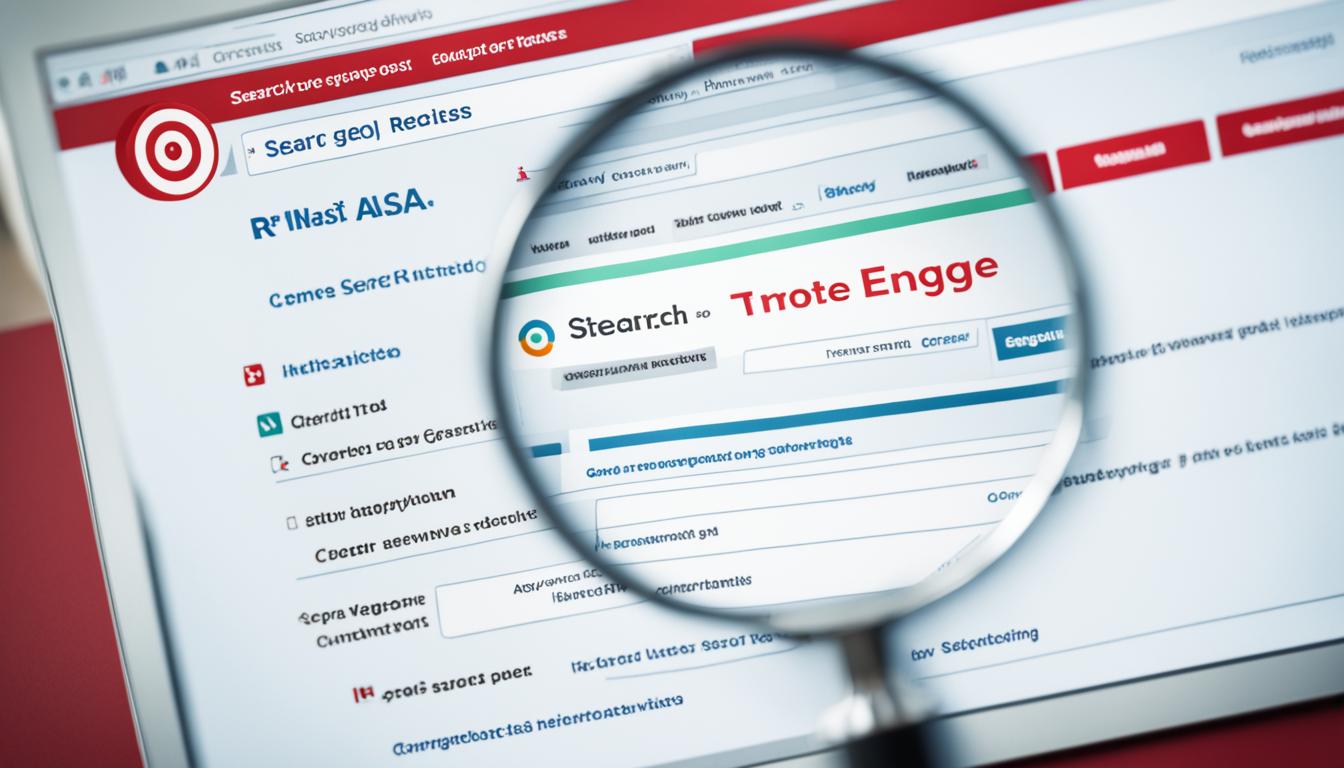Qantas Airways Limited, Australia’s leading domestic and international airline, has formulated a comprehensive marketing strategy to establish itself as an industry leader. By leveraging effective branding tactics, digital marketing initiatives, and customer loyalty programs, Qantas has successfully attracted and retained customers in an increasingly competitive market.
In this case study, we will explore Qantas’ innovative marketing strategies and examine how they have contributed to the airline’s success. From branding tactics to digital marketing techniques, we will uncover the key pillars of Qantas’ marketing strategy and their impact on the airline industry.
Key Takeaways:
- Qantas Airways has implemented innovative marketing strategies to attract and retain customers in the airline industry.
- Effective branding tactics, including the iconic flying kangaroo logo and sub-brands like Jetstar, have helped Qantas establish a strong brand identity.
- Qantas leverages digital marketing tools and strategies to effectively promote its services and generate brand awareness.
- The airline’s customer loyalty program, Qantas Frequent Flyer, plays a key role in cultivating customer loyalty and encouraging repeat business.
- Qantas focuses on data-driven decision-making and innovation to stay ahead of the competition and deliver effective marketing strategies.
Qantas Branding Tactics
Qantas Airways Limited, the leading airline in Australia, has implemented a range of effective branding tactics to differentiate itself from competitors and establish a strong brand identity in the market. These tactics play a crucial role in Qantas’ airline marketing strategies and successful airline promotions.
The Iconic Flying Kangaroo Logo
One of the key elements of Qantas’ branding tactics is its iconic flying kangaroo logo. Recognized worldwide, this logo represents the airline’s strong Australian heritage and commitment to quality service. The logo is prominently displayed on Qantas aircraft, uniforms, and marketing materials, facilitating brand recognition and recall among customers.
Consistent Brand Messaging
To maintain brand consistency across all marketing channels, Qantas ensures its brand messaging aligns with its core values and target audience. Whether it’s through television commercials, print advertisements, or social media campaigns, Qantas delivers a consistent brand message that emphasizes reliability, safety, and exceptional customer experience. This consistency helps build brand trust and loyalty among customers.
Development of Sub-Brands
Qantas has also successfully developed sub-brands to cater to different customer segments and expand its market reach. One notable example is Jetstar, a low-cost carrier launched by Qantas. With Jetstar, Qantas targets budget-minded travelers who are seeking affordable air travel options without compromising on quality and service. By offering a distinct sub-brand, Qantas can serve a wider range of customers and effectively compete in various market segments.
| Branding Tactics | Benefits |
|---|---|
| Iconic Flying Kangaroo Logo | Enhanced brand recognition and recall |
| Consistent Brand Messaging | Builds brand trust and loyalty |
| Development of Sub-Brands | Expands market reach and serves diverse customer segments |
In conclusion, Qantas’ branding tactics, including the use of the iconic flying kangaroo logo, consistent brand messaging, and the development of sub-brands like Jetstar, are instrumental in establishing a strong brand identity and attracting customers. These airline marketing strategies and effective airline promotions contribute to Qantas’ success in the highly competitive airline industry.
Digital Marketing for Airlines
In today’s digital age, airlines must adapt their marketing strategies to remain competitive and reach their target audiences. Qantas, one of Australia’s leading airlines, has recognized the importance of digital marketing in promoting its services and generating brand awareness. By leveraging various digital channels and employing data-driven decision-making, Qantas has successfully implemented effective marketing campaigns. Let’s explore how Qantas utilizes digital marketing tactics to stay ahead in the airline industry.
Social Media Engagement
Social media platforms have become powerful tools for airlines to connect with their customers and showcase their services. Qantas strategically employs social media marketing, leveraging platforms such as Facebook, Twitter, and Instagram to engage with its audience. The airline shares captivating visuals and compelling content that resonate with travelers’ aspirations, reflecting the joy and excitement of air travel. Through regular updates, Qantas keeps its followers informed about promotions, new routes, and travel inspiration, fostering a sense of anticipation and loyalty.
Email Marketing and Personalization
Email marketing is another essential component of Qantas’ digital marketing strategy. By collecting customer data and utilizing advanced analytics, Qantas delivers personalized and targeted emails to its subscribers. These emails are tailored to individual preferences, offering customized travel recommendations, exclusive offers, and relevant updates. Qantas understands the value of personalization in cultivating customer relationships and creating a positive brand experience.
Online Advertising
To reach a broader audience and increase brand visibility, Qantas invests in online advertising campaigns. By strategically placing ads on relevant websites, search engines, and social media platforms, Qantas ensures that its brand message is delivered to potential customers who are actively seeking travel information and services. The airline carefully optimizes its ads to align with the interests and demographics of the target audience, maximizing the effectiveness of its digital advertising efforts.
Data Analytics and Targeted Campaigns
Qantas recognizes the power of data in shaping its marketing campaigns. The airline extensively analyzes customer behavior, preferences, and booking patterns to gain valuable insights. These insights allow Qantas to develop targeted campaigns that resonate with specific customer segments. By tailoring its messaging, offers, and promotions to the unique needs and preferences of each segment, Qantas maximizes the impact of its marketing efforts and establishes a connection with its customers.
Effective Qantas Marketing Campaigns
Qantas is renowned for its impactful marketing campaigns that captivate audiences and generate buzz. Their campaigns resonate with travelers’ emotions, building anticipation and excitement around travel experiences. Whether it’s the captivating commercials showcasing exotic destinations or the heartwarming stories highlighting the joy of reuniting loved ones, Qantas consistently delivers compelling campaigns that inspire wanderlust and reinforce its position as a leading airline.
Qantas Digital Marketing Channels
| Channel | Description |
|---|---|
| Social Media | Engagement via Facebook, Twitter, Instagram to connect with customers and promote services |
| Email Marketing | Targeted emails personalized with travel recommendations and exclusive offers |
| Online Advertising | Strategic placement of ads on relevant websites, search engines, and social media platforms |
| Data Analytics | Utilization of customer data to gain insights and develop targeted marketing campaigns |
By leveraging the power of digital marketing, Qantas consistently engages its audience, promotes its services, and strengthens its brand. Through social media engagement, targeted emails, online advertising, and data-driven decision-making, Qantas stays ahead in the ever-evolving airline industry. As technology continues to advance, Qantas remains at the forefront of digital marketing innovation, driving its success in reaching and captivating customers.
Customer Loyalty Programs for Airlines
Qantas Airways has recognized the importance of customer loyalty in the highly competitive airline industry. To foster customer loyalty and repeat business, the airline has developed a robust loyalty program called Qantas Frequent Flyer.
The Qantas Frequent Flyer program offers a range of benefits and rewards to frequent travelers, providing them with incentives to choose Qantas over other airlines. By enrolling in the program, customers can earn and redeem points for flights, upgrades, and various travel-related services.
What sets Qantas Frequent Flyer apart is its extensive network of partnerships with retail and financial institutions. These partnerships allow program members to earn additional points through everyday activities such as shopping, dining, and using specific credit cards. This collaborative approach enhances the value proposition for members, delivering a more comprehensive rewards program.
Through Qantas Frequent Flyer, the airline is able to cultivate customer loyalty and encourage repeat business. By offering exclusive perks, such as access to luxury lounges and priority services, Qantas creates a sense of exclusivity and recognition for its most loyal customers.
Qantas’ Strategic Use of Data and Innovation
Qantas Airways Limited understands the vital role that data and innovation play in shaping its marketing strategy. By utilizing advanced data analytics, the airline gains valuable insights into customer preferences and behaviors, enabling the creation of targeted marketing campaigns and personalized experiences.
Qantas leverages data-driven decision-making to identify trends, anticipate customer needs, and deliver effective airline promotions. This strategic approach allows the airline to stay ahead of the competition and ensure its marketing efforts have a meaningful impact on its target audience.
In addition to data analytics, Qantas embraces innovation by harnessing technology to enhance customer engagement and improve the overall travel experience. The airline leverages smartphone apps and online retail partnerships to provide customers with convenient access to its services and streamline their journey.
This commitment to data and innovation positions Qantas as a leader in the industry, allowing the airline to deliver effective marketing strategies that resonate with its customers’ evolving expectations.
The Role of Data Analytics
Data analytics provides Qantas with valuable insights that drive its marketing strategy. Through comprehensive analysis of customer data, the airline gains a deeper understanding of customer preferences, purchasing behavior, and travel patterns. This crucial information enables Qantas to create targeted promotions and tailored experiences, improving customer satisfaction and loyalty.
Innovation and Technological Advancements
Qantas’ commitment to innovation is evident in its adoption of technology to enhance the customer experience. The airline has developed user-friendly smartphone apps that provide customers with convenient access to flight information, booking services, and personalized offers. Additionally, Qantas collaborates with online retail partners to offer seamless travel experiences, integrating services such as accommodation and car rentals.
Qantas’ Focus on Customer Service
Qantas, a leading domestic and international airline, understands the importance of delivering exceptional customer service as part of its airline marketing strategies. By prioritizing customer satisfaction, Qantas aims to build strong relationships with its passengers and enhance brand loyalty.
One of the initiatives that Qantas has implemented to improve customer engagement and satisfaction is the use of iPad-equipped customer service managers on flights. These skilled professionals are equipped with the tools and resources necessary to assist passengers during their journey, ensuring a smooth and enjoyable experience.
Qantas also utilizes technology and data to personalize customer interactions and provide tailored solutions to individual needs. By leveraging customer data, the airline can anticipate and address customer preferences, delivering a more personalized and efficient service. This personalized approach enhances the overall customer experience and increases customer satisfaction.
By making customer service a priority, Qantas demonstrates that it values its passengers and strives to exceed their expectations. This commitment to exceptional service helps Qantas differentiate itself from competitors and encourages repeat business and positive word-of-mouth promotion.
Benefits of Qantas’ Customer Service Initiatives:
- Improved customer engagement and satisfaction
- Personalized customer interactions and tailored solutions
- Enhanced brand loyalty and repeat business
- Positive word-of-mouth promotion
Case Study: Customer Service Manager Success
In a recent customer satisfaction survey, Qantas received overwhelmingly positive feedback regarding its customer service managers. Passengers praised their attentiveness, knowledge, and willingness to go above and beyond to assist them. This positive feedback reinforces the effectiveness of Qantas’ customer service initiatives and highlights their impact on passenger satisfaction.
Key Customer Service Performance Metrics
| Metric | Qantas | Industry Average |
|---|---|---|
| Customer Satisfaction Score | 94% | 88% |
| On-time Performance | 92% | 87% |
| Customer Complaints | 0.5% of total passengers | 2% of total passengers |
As the table above demonstrates, Qantas’ focus on customer service has resulted in higher customer satisfaction scores and fewer customer complaints compared to the industry average. This highlights the effectiveness of Qantas’ customer service initiatives in delivering a superior travel experience for its passengers.
By consistently delivering exceptional customer service, Qantas strengthens its competitive position in the airline industry and reinforces its reputation as a customer-centric airline.
Qantas’ Approach to Market Segmentation
Qantas Airways understands the importance of targeted marketing when it comes to airline promotions. In order to effectively reach different customer segments, Qantas employs a strategic approach to market segmentation. By dividing its customer base into distinct groups based on factors such as trip purpose (business or leisure), specific needs, and preferences, Qantas is able to tailor its marketing messages and promotions to each segment.
This approach allows Qantas to ensure maximum relevance and effectiveness in its advertising campaigns. By understanding the unique characteristics and motivations of each customer segment, Qantas can create personalized promotions that resonate with their specific interests and needs. This targeted approach not only enhances the overall customer experience but also contributes to the success of Qantas’ marketing campaigns and airline marketing strategies.
For example, Qantas may create specific promotions and offers for business travelers, highlighting the convenience and comfort of their premium cabin services, as well as benefits such as priority boarding and access to exclusive lounges. On the other hand, for leisure travelers, Qantas may focus on promoting their expansive network of destinations, vacation packages, and family-friendly services. By catering to the specific desires of each segment, Qantas is able to effectively communicate the value and benefits of choosing their airline.
Market segmentation also enables Qantas to allocate its marketing resources efficiently. By understanding the demographics, preferences, and behaviors of different customer segments, Qantas can target its marketing efforts and budget towards the most profitable and receptive markets. This strategic approach helps Qantas optimize its marketing spend and achieve a higher return on investment.
Benefits of Qantas’ Market Segmentation Strategy
The market segmentation strategy employed by Qantas offers a range of benefits to both the airline and its customers:
- Relevance: By tailoring marketing messages and promotions to specific customer segments, Qantas ensures that its communications are relevant and resonate with each audience.
- Personalization: Market segmentation allows Qantas to create personalized experiences for its customers, making them feel valued and understood.
- Improved ROI: By focusing its marketing efforts on the most profitable customer segments, Qantas can optimize its return on investment and allocate resources effectively.
- Customer Satisfaction: By understanding and meeting the unique needs of different customer segments, Qantas can enhance customer satisfaction and foster long-term loyalty.
| Customer Segment | Key Characteristics | Targeted Promotions |
|---|---|---|
| Business Travelers | Often travel for work, value comfort and convenience | Priority boarding, access to exclusive lounges, premium cabin services |
| Leisure Travelers | Travel for vacation and leisure purposes, value destination options and family-friendly services | Expansive network of destinations, vacation packages, family-friendly amenities |
| International Travelers | Travelers from overseas, seek hassle-free experiences and cultural immersion | Smooth connections, visa assistance, local experiences |
| Frequent Flyers | Loyal customers who travel frequently with Qantas | Frequent flyer program benefits, exclusive upgrades, bonus points |
Qantas’ Competitive Positioning
Qantas Airways strategically positions itself in the airline market by employing effective airline promotions and innovative airline marketing strategies. The company recognizes the importance of differentiation to stand out from competitors. Qantas achieves this through various positioning strategies, tailored to cater to different segments of the market.
One key aspect of Qantas’ competitive positioning is the launch of sub-brands like Jetstar. By offering budget-friendly travel options, Qantas successfully appeals to budget-minded travelers who prioritize affordability. This strategic move allows Qantas to tap into a wider customer base and capture market share that may have otherwise been lost to low-cost carriers.
Additionally, Qantas positions itself as a provider of premium services to attract higher-end customers. The airline boasts an array of offerings that cater to travelers seeking a more luxurious experience. This includes premium lounges, upgraded in-flight amenities, and personalized services. By highlighting these unique offerings, Qantas differentiates itself from competitors and establishes itself as a top choice for discerning travelers.
Another important aspect of Qantas’ competitive positioning is its strategic emphasis on its frequent flyer program. This loyalty program provides customers with exclusive benefits and rewards, such as points that can be redeemed for flights, upgrades, and other travel-related services. By leveraging its loyalty program, Qantas effectively fosters customer loyalty and incentivizes repeat business.
To visually showcase the positioning strategies adopted by Qantas, a comparative table is presented below highlighting the key elements of its competitive positioning in the airline industry:
| Positioning Strategies | Description |
|---|---|
| Sub-Brands like Jetstar | Catering to budget-minded travelers |
| Premium Services | Targeting higher-end customers with luxury offerings |
| Frequent Flyer Program | Incentivizing customer loyalty through exclusive rewards |
Qantas’ competitive positioning strategies enable the airline to capture and retain customers in a fiercely competitive industry. By effectively addressing the diverse needs and preferences of different market segments, Qantas ensures that it remains a prominent player in the airline market.
Conclusion
Qantas’ marketing strategy is a comprehensive approach that encompasses branding tactics, digital marketing, customer loyalty programs, data-driven decision-making, and a focus on customer service. By leveraging these strategies, Qantas has successfully positioned itself as a leader in the airline industry, attracting and retaining customers with effective promotions and personalized experiences.
Through its branding tactics, Qantas has established a strong brand identity, distinguished itself from competitors, and built trust and loyalty among customers. The airline’s use of digital marketing tools and data analytics has allowed it to reach and engage target audiences effectively, while its customer loyalty program, Qantas Frequent Flyer, cultivates customer loyalty and encourages repeat business.
Furthermore, Qantas’ focus on customer service and market segmentation ensures that it meets the unique needs and preferences of its diverse customer base. By continually innovating and adapting to the ever-changing marketing landscape, Qantas remains well-positioned for future success in the airline industry.
Overall, Qantas’ comprehensive marketing strategy, which combines branding tactics, digital marketing, customer loyalty programs, data-driven decision-making, and a focus on customer service, has propelled it to a leadership position in the airline industry. With its continued commitment to innovation and adaptability, Qantas is poised for ongoing success in the dynamic and competitive airline market.







